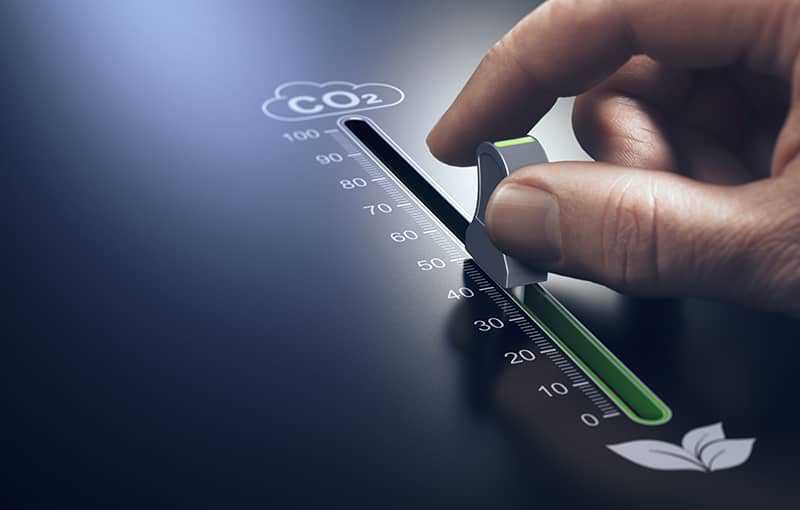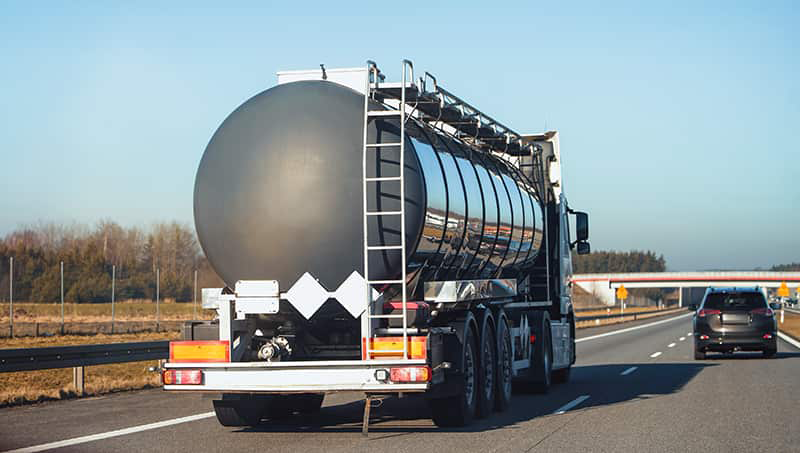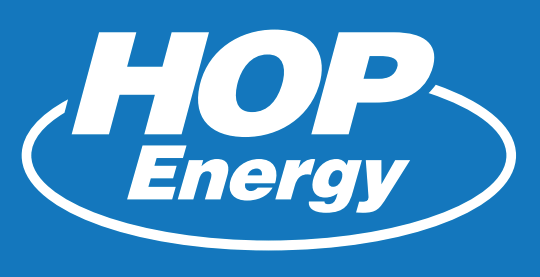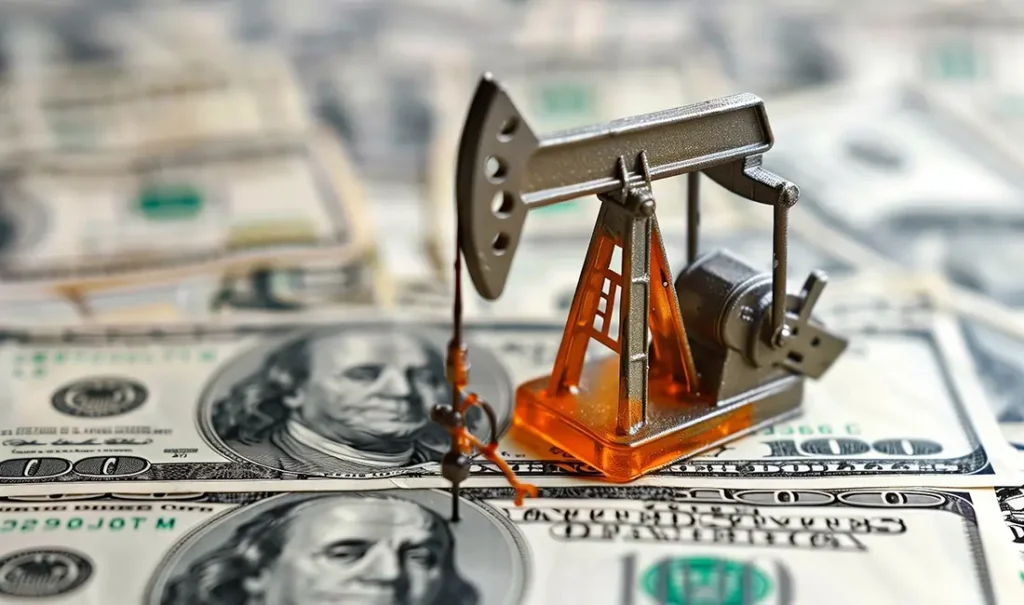Propane, often overlooked in the energy debate, holds significant environmental and efficiency benefits that debunk common myths about its use. Its lower emissions, high energy output, and compatibility with renewable technologies showcase its role beyond a mere transitional fuel. Propane is instrumental in the move towards cleaner energy solutions, offering a reliable alternative that complements the intermittency of renewable sources like solar and wind.
Table of Contents
The development of bio-propane and advancements in propane technologies further enhance its sustainability credentials, suggesting a long-term role in global energy strategies. With an established distribution network, propane is accessible and poised to meet diverse energy needs across residential, commercial, and industrial sectors.
Environmental Advantages of Propane
Propane stands out for its environmental benefits, primarily due to its clean-burning nature. It produces fewer greenhouse gases compared to other fossil fuels, with significantly lower carbon dioxide (CO2) emissions upon combustion. This reduction in emissions is crucial for efforts aimed at combating climate change.
Moreover, propane generates minimal particulate matter and lower nitrogen oxides (NOx), pollutants associated with air quality concerns. These characteristics make it a preferable choice in reducing smog and improving overall air quality, particularly in densely populated or sensitive ecosystems.
Its efficiency and lower emissions profile place propane as a practical component of environmental strategies, supporting the transition to cleaner energy sources while maintaining energy reliability and performance.
Debunking Myths with Facts
Myth 1: Propane is as Harmful as Coal and Oil
Fact: Propane emits significantly fewer greenhouse gases and pollutants than coal and oil. Its combustion process is cleaner, making it a more environmentally friendly option.
Myth 2: Propane’s Environmental Impact is Negligible
Fact: While propane is cleaner than many alternatives, it plays a crucial role in reducing emissions and improving air quality. Its benefits are substantial, particularly when replacing more polluting fuels.
Myth 3: There is No Environmental Justification for Using Propane
Fact: Propane serves as an effective bridge fuel, facilitating the transition to renewable energy by providing reliable and cleaner energy during this shift. Its use supports significant environmental improvements.
Myth 4: Propane's Role in Sustainability is Overstated
Fact: The integration of propane into energy systems can enhance efficiency and reduce reliance on less sustainable energy sources. Its contributions to sustainability efforts, especially in terms of reducing overall energy consumption and emissions, are both real and measurable.
Myth 5: Switching to Propane Does Not Significantly Reduce Carbon Footprint
Fact: Transitioning to propane from fuels like gasoline, diesel, or heavy oil can lead to a marked decrease in carbon emissions. Propane’s lower carbon content and higher combustion efficiency make it a key player in efforts to minimize carbon footprints across various sectors.

Myth 6: Propane Production is as Environmentally Damaging as Other Fossil Fuels
Fact: The extraction and processing of propane are generally less impactful than the production processes for coal and oil. While still part of the fossil fuel family, propane’s lifecycle emissions are lower, making its production comparatively less harmful to the environment.
Myth 7: Propane Cannot Contribute to Renewable Energy Goals
Fact: Propane can complement renewable energy sources by providing a reliable and clean backup energy solution. Its capacity for storage and on-demand usage makes it an ideal partner for solar and wind energy, ensuring energy availability during periods of low renewable generation.
Myth 8: Propane is Just a Transitional Fuel and Lacks Long-Term Viability
Fact: While propane is an excellent transitional fuel, ongoing advancements in propane technology and its integration with renewable energy systems suggest its potential for long-term viability in a sustainable energy mix. Propane’s role is evolving, indicating its continued relevance in future energy strategies.
Myth 9: Propane Use is Limited and Cannot Meet Large-Scale Energy Demands
Fact: Contrary to this belief, propane is highly scalable and versatile, capable of meeting both small-scale residential needs and large-scale industrial demands. Its efficiency and the infrastructure already in place allow it to serve a wide range of energy requirements effectively.
Myth 10: Propane Technology Has Peaked and Offers No Further Environmental Benefits
Fact: Innovation in propane technologies continues to advance, with research focused on increasing efficiency and reducing emissions even further. Developments in propane combustion engines, hybrid systems with renewable energy, and improvements in storage and distribution methods promise enhanced environmental benefits.
Myth 11: Propane Safety Concerns Outweigh Its Environmental Advantages
Fact: While safety is paramount in handling all energy sources, propane has a strong safety record due to strict regulations, industry standards, and the inherent properties of propane that make it safer than many alternatives. Proper handling and storage significantly mitigate risks, ensuring that its environmental advantages are not overshadowed by safety concerns.
Myth 12: The Environmental Impact of Propane Transport Negates Its Benefits
Fact: Although transporting any fuel has an environmental impact, propane’s transportation is relatively efficient, thanks to its liquid state under pressure, allowing for compact and safe transport. The overall lifecycle emissions of propane, even when including transportation, remain lower compared to many other fuels.
Myth 13: Propane Appliances Are Less Efficient and More Costly Than Electric Ones
Fact: Modern propane appliances are highly efficient, often exceeding the performance of their electric counterparts, especially in heating and cooking applications. When considering the full cost of supply, including the efficiency of production and distribution, propane can be more economical and offer faster heating times and better control over cooking temperatures.
Myth 14: There is Limited Research and Development in Propane Technology
Fact: The propane industry is at the forefront of research and development efforts, focusing on enhancing propane’s efficiency and environmental benefits. Innovations include hybrid propane-renewable energy systems, advanced combustion appliances, and the development of renewable propane, which is produced from sustainable resources.
Myth 15: Propane is Difficult to Find and Refill
Fact: Propane is widely available, with an extensive distribution network that spans across urban and rural areas. The infrastructure for propane refilling and exchange is well-established, making it convenient for consumers to access propane when needed.

Myth 16: Switching to Propane Requires Significant Infrastructure Changes
Fact: Many existing heating systems and appliances can be easily converted to use propane, often with minimal modifications. The process is straightforward, and the propane industry provides services and support to facilitate the transition for both residential and commercial users.
Myth 17: Propane Does Not Offer Modern Technological Features
Fact: Propane appliances and systems are increasingly incorporating smart technology, offering users enhanced efficiency, control, and integration with home automation systems. These advancements improve user experience and energy management, debunking the myth that propane technology is outdated.
Myth 18: Propane Storage Tanks Are an Eyesore and Decrease Property Value
Fact: Propane tanks can be installed underground or designed to blend with the landscape, minimizing visual impact. Moreover, the presence of a propane system can actually increase property value by providing an efficient, independent energy source, especially in areas where other utilities are less reliable.
Myth 19: Propane Only Works for Heating and Cooking
Fact: Beyond heating and cooking, propane powers a wide array of appliances and equipment, including water heaters, clothes dryers, generators, outdoor grills, and even vehicles. Its versatility extends to commercial and agricultural uses, proving propane is a multi-purpose energy source.
Myth 20: Converting to Propane is Time-Consuming and Disruptive
Fact: Propane conversion typically involves straightforward modifications and can often be completed quickly, with minimal disruption to property owners. Professional installers ensure a seamless transition, providing guidance and support throughout the process.
Myth 21: Propane's Performance is Affected by Cold Weather
Fact: Propane remains effective under a wide range of temperatures and is reliable even in extremely cold conditions. Its ability to vaporize at low temperatures ensures consistent performance, making it an excellent choice for heating in cold climates.
Myth 22: Using Propane Means Constantly Monitoring Fuel Levels
Fact: Many propane providers offer automatic delivery services, using consumption patterns and monitoring technology to ensure a continuous supply. This convenience eliminates the need for regular checks, offering peace of mind to users.
Each of these myths underscores common misconceptions about propane that don’t align with current realities and advancements in the field. Dispelling these myths is crucial for understanding the true versatility, efficiency, and potential of propane as a preferred energy choice.
Propane in a Sustainable Future
Propane is a key player in the shift toward sustainable and renewable energy, offering more than just a transitional solution. Its ability to complement renewable sources like solar and wind with on-demand energy ensures reliability without sacrificing environmental objectives. The ongoing development of more efficient and eco-friendly propane technologies, including bio-propane, enhances its sustainability profile.
The extensive propane distribution network ensures its accessibility for various applications, reinforcing its role in both current and future energy frameworks. High-efficiency propane appliances contribute to reduced energy consumption and lower emissions, aligning with global conservation efforts.
Economically, propane presents a cleaner alternative that can bolster economic growth, improve health outcomes by reducing pollution, and support energy reliability in underserved areas. As recognition of its environmental benefits grows, propane is poised to influence policy and advocate for a cleaner energy mix.
Propane’s integration into the energy landscape underscores its potential as a sustainable option, equipped to address contemporary energy challenges and contribute to a more sustainable, inclusive energy future.
Conclusion
Recognizing propane’s value is essential for informed energy policy and environmental advocacy. It stands not only as a bridge to a renewable future but also as a key player in a sustainable, diversified energy mix. This re-evaluation of propane encourages a broader acceptance and integration into energy planning, underscoring its potential to contribute positively to environmental goals and energy security. Propane’s journey underscores the importance of data-driven decisions in energy policy, advocating for its rightful place in the pursuit of a cleaner, more sustainable energy landscape.




